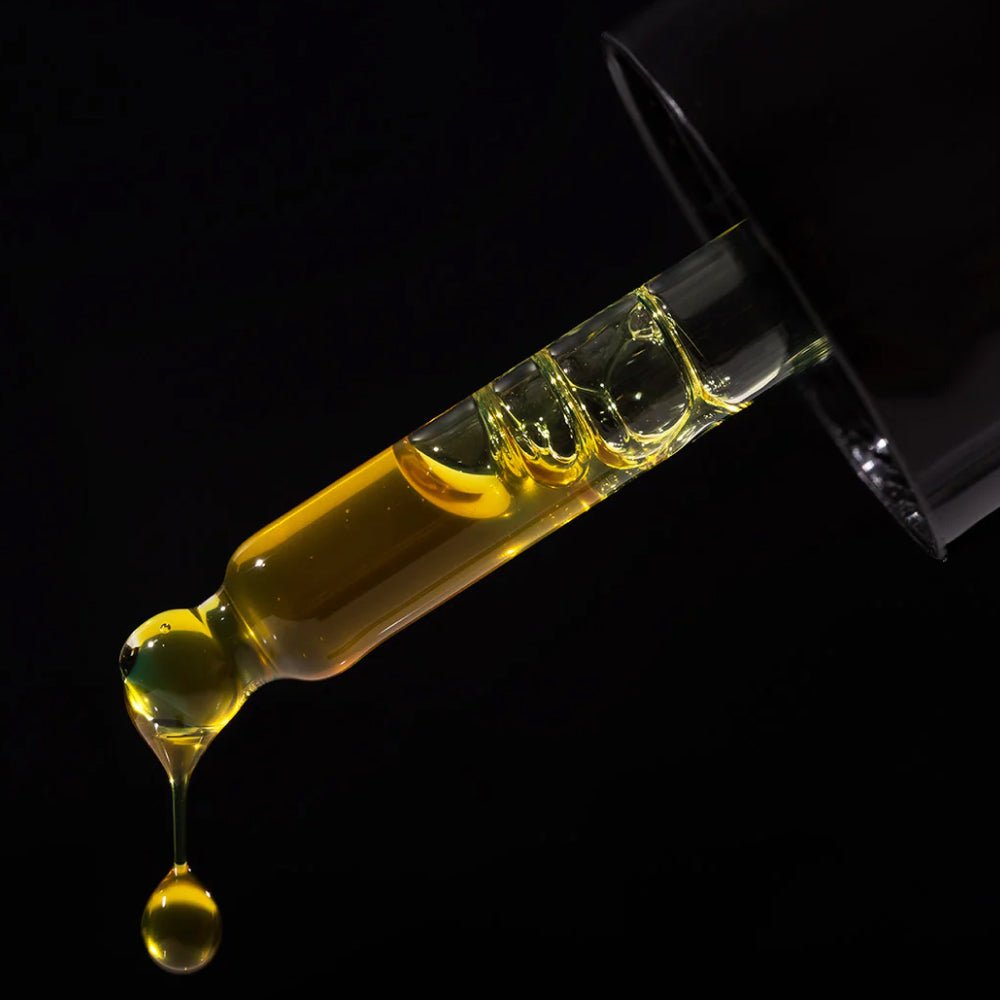Imagine overeating dairy and your skin appears to have many red patches. There is a strong connection between what you eat and how food could affect your skin, especially when suffering from eczema. Therefore, it is advisable that adjusting your diet can significantly mitigate flare-ups and ease symptoms. This article will explore the 6 best diets to reduce eczema and promote healthy skin.
Anti-Inflammatory Diet
An anti-inflammatory diet is one of the best diets to reduce eczema, which eliminates foods that increase eczema symptoms by eating fiber-rich foods. This nutrition plan comprises rich fruits, vegetables, whole grains, and lean proteins that can lessen inflamed skin. Examples of food types like berries, salmon, and leafy greens are loaded with antioxidants and omega-3 fatty acids that work to calm the skin from the inside out.
The opposite of this diet is foods rich in processed sugar, red meats, and refined grains. You should restrict these in your meals as they spark food allergies and skin reactions.
Mediterranean Diet
The Mediterranean diet, originating from European countries, focuses on plant-based foods, whole grains, and proteins rather than processed foods, making it beneficial for those with eczema.
A vital aspect of this diet is quercetin, an antioxidant and anti-inflammatory compound found in fruits and vegetables like apples, onions, citrus fruits, parsley, sage, and certain teas. Foods rich in omega-3 fatty acids, such as olive oil and dark berries, also help reduce inflammation and support healthy skin.
This diet includes a variety of fruits, vegetables, nuts, seeds, beans, fish, and healthy fats, supplying essential nutrients to moisturize the skin and alleviate eczema symptoms. While red wine is common in Mediterranean culture, it should be avoided as it can worsen eczema by increasing inflammation and hindering skin healing.
Ayurvedic Diet
Ayurveda is an ancient Indian system of medicine focused on balancing the body and mind. For managing eczema, Ayurveda suggests specific dietary changes based on “Vata” and “Pitta” body types, which relate to dryness, heat, and inflammation in the body.
Foods like coconut, cucumber, leafy greens, and sweet fruits like melons are often recommended to cool and soothe the skin. While these foods are helpful, it's also important to know what to avoid. Dairy, gluten, nightshades (a group of vegetables including tomatoes, potatoes, eggplants, and peppers), seafood, and overly spicy, salty, or sour foods can worsen eczema symptoms and should be limited or removed from your diet.
By eating cooling, hydrating, and anti-inflammatory foods while avoiding potential triggers, Ayurvedic practices aim to manage and reduce eczema flare-ups effectively!
Elimination Diet
Avoiding certain foods that can contribute to your allergies can diminish eczema symptoms. Eliminating those and adding them gradually back to your diet is how to identify triggers faster.
For instance, nightshades like eggplants, as well as dairy, white flour, alcohol, and citrus fruits, are often linked to worsening eczema. These foods have been identified in some studies as common culprits for people prone to eczema due to their inflammatory potential or allergenic properties.
Keep in mind that an elimination diet requires patience, as it may take several weeks to observe noticeable results. However, it can be especially effective for individuals with strong ties to food sensitivities or allergies, offering a clearer path to managing eczema triggers and achieving healthier skin.
Dyshidrotic Diet
A dyshidrotic diet is tailored for individuals dealing with dyshidrotic eczema, a condition that typically affects the hands and feet. These areas are especially vulnerable when the skin becomes dehydrated due to exposure to harsh chemical products.
This diet encourages the inclusion of plenty of fruits and vegetables while avoiding foods high in nickel or cobalt, such as chocolate, soy, and certain nuts, which are known triggers for dyshidrotic eczema symptoms. If flare-ups persist, transitioning to a vegan diet might provide additional benefits, as plant-based foods tend to be less inflammatory.
Doctors also advise minimizing exposure to acidic foods like lemon and vinegar, which can irritate sensitive skin. Wearing gloves while handling these ingredients can offer protection and help prevent further irritation or flare-ups.
Additionally, frequent contact with household cleaning agents, detergents, soaps, and hand sanitizers can exacerbate symptoms by drying out the skin. To minimize this risk, opt for mild, fragrance-free cleaning products, and wear gloves while cleaning or handling potentially irritating substances. Adopting these protective measures alongside a mindful diet can help manage dyshidrotic eczema more effective.
Gluten-Free Diet
For some individuals, gluten can trigger eczema flare-ups, particularly those with a gluten intolerance or celiac disease. A gluten-free diet means eliminating foods such as brown rice, bread, chips, baked goods, and surprising things like soy sauce and salad dressing.
You can replace these with rice, quinoa, and gluten-free oats. Healthier foods like this will provide great alternatives without sacrificing your essential nutrients. The absence of gluten helps reduce inflammation in sensitive individuals, often leading to clearer skin.
Foods That Trigger Eczema That You Should Avoid!
This is our recommendation for foods that are known to worsen symptoms. Common triggers include:
- Dairy products
- Eggs
- Certain nuts
- Nightshade vegetables like tomatoes or eggplants, potatoes, chili Peppers,
- Spices like cloves and cinnamon
- Foods high in nickel like shellfish and soy products
- Red meats
- Gluten such as wheat, rye, and barley
Getting rid of these foods can help prevent flare-ups and keep the skin calm. Personal triggers may differ, so keeping a food diary can help identify specific foods irritating your skin and find your best diet to reduce eczema effectively.
Supplements To Alleviate Eczema Symptoms
While food can support healthy skin, supplements can also play a crucial role in alleviating eczema symptoms:
- Probiotics: Help promote gut health, which may reduce eczema.
- Omega-3 Fatty Acids: Found in fish oil supplements, which may help reduce inflammation.
- Vitamin D: Known to improve the skin barrier and reduce eczema outbreaks.
- Zinc: A vital mineral for skin healing and immune function.
- Turmeric (Curcumin): Has anti-inflammatory properties that help reduce skin irritation.
Including these supplements in your daily regimen can help enhance the effects of your diet and provide additional relief from eczema symptoms.
While dietary changes are important, a comprehensive skincare approach should be considered to target eczema. Phoilex products like the Active ReLeaf Spot Gel and Liverty Dynamic Drops provide a safe and effective solution. With the Active ReLeaf Spot Gel, you can help soothe inflamed skin instantly and restore the skin's barrier, while Liverty Dynamic Drops support skin health from within, reducing inflammation and promoting long-term well-being. These products are designed to calm irritated skin, promote overall skin health, and work hand-in-hand with your diet to provide relief and support for your eczema.
Trust Phoilex For Effective Eczema Relief
Managing eczema isn’t just about treating the skin externally, and diet can have a powerful impact on overall skin health. Whether you're adopting an anti-inflammatory diet or trying a gluten-free plan, finding the best diet to reduce eczema can help control eczema symptoms. While diet can be a game-changer, combining it with effective products like those from Phoilex will give you the best chance at long-term relief.
Frequently Asked Questions!
Q: How does diet affect eczema symptoms?
A: Diet plays a significant role in managing eczema by either triggering flare-ups or reducing inflammation. Certain foods can increase inflammation and worsen symptoms, while anti-inflammatory foods like berries, leafy greens, and omega-3 rich fish can help calm irritated skin and reduce flare-ups.
Q: Which foods should I avoid if I have eczema?
A: People with eczema should avoid processed foods, refined sugars, red meats, and common trigger foods like dairy products. These foods can increase inflammation and trigger allergic reactions that worsen eczema symptoms.
Q: What makes the Mediterranean diet beneficial for eczema?
A: The Mediterranean diet helps manage eczema through its focus on anti-inflammatory foods rich in quercetin and omega-3 fatty acids. It emphasizes plant-based foods, whole grains, and healthy fats like olive oil while limiting processed foods that can trigger inflammation.
Q: Can the anti-inflammatory diet help reduce eczema flare-ups?
A: Yes, the anti-inflammatory diet can significantly reduce eczema flare-ups by incorporating fiber-rich foods and eliminating inflammatory triggers. This diet focuses on fruits, vegetables, whole grains, and lean proteins that help calm inflammation from within the body.
Q: What role do omega-3 fatty acids play in managing eczema?
A: Omega-3 fatty acids, found in foods like salmon and olive oil, help reduce inflammation and support skin barrier function. These essential fats can help moisturize the skin from within and decrease the severity of eczema symptoms.
Q: How quickly can dietary changes improve eczema symptoms?
A: Dietary changes typically take 4-6 weeks to show noticeable improvements in eczema symptoms. Consistency with an anti-inflammatory or Mediterranean diet is key, and some people may notice initial improvements within 2-3 weeks of eliminating trigger foods.
Q: What are the best fruits and vegetables for reducing eczema symptoms?
A: Berries, leafy greens, apples, onions, and citrus fruits are particularly beneficial for eczema due to their high antioxidant and quercetin content. These foods help fight inflammation and provide essential nutrients that support skin health.
References:
- Cleveland Clinic. (2024a, June 27). Have eczema? how your diet may play a role. https://health.clevelandclinic.org/eczema-diet
- Richter, A. (2023, September 12). Eczema diet: Foods to eat, avoid, and tips. Medical News Today. https://www.medicalnewstoday.com/articles/320855#diet-plans
- Whelan, C. (2023, October 18). Eczema diet: Foods to eat and foods to avoid. Healthline. https://www.healthline.com/health/skin-disorders/eczema-diet#eczema-eating-plans
- The Nutrition Source. (2024, May 9). Omega-3 fatty acids: An essential contribution. https://nutritionsource.hsph.harvard.edu/what-should-you-eat/fats-and-cholesterol/types-of-fat/omega-3-fats/
- Liu, C., Cheng, X., Wu, Y., Xu, W., Xia, H., Jia, R., Liu, Y., Shen, S., Xu, Y., & Cheng, Z. (2023, August 21). Antioxidant activity of quercetin-containing liposomes-in-gel and its effect on prevention and treatment of cutaneous eczema. MDPI. https://www.mdpi.com/1424-8247/16/8/1184
- Nosrati, A., Afifi, L., Danesh, M. J., Lee, K., Yan, D., Beroukhim, K., Ahn, R., & Liao, W. (2017, September). Dietary modifications in atopic dermatitis: Patient-reported outcomes. The Journal of dermatological treatment. https://pmc.ncbi.nlm.nih.gov/articles/PMC5736303/


